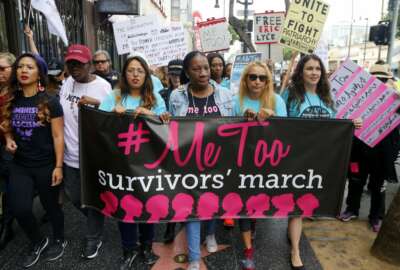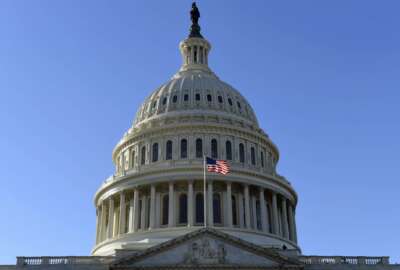
#MeToo at the office
Senior Correspondent Mike Causey tackles the #MeToo movement that has taken over all industries, including the federal government.
Sexual harassment (and worse) in the workplace has been around a long, long time and just about everywhere. Sometimes we hear about it happening in the government when a prominent politician gets caught, often leaving a paper trail in which the taxpayers unwittingly supple the hush money enabling him to keep his dirty little secret. And his job.
From time to time, there is a high-profile federal case that gets publicity. Last year 223 women at the State Department and DHS went public in a letter about sexual harassment. State took decisive action: It updated its sexual harassment training.
The National Park Service also had major problems nationwide. Interior Secretary Ryan Zinke said it would not be tolerated and it sounded like he meant it. But the problem is in the reporting, telling people and getting them to believe, while avoiding a witch-hunt atmosphere.
Sometimes we hear about it in our own organization. Sometimes. Women usually know a lot more about it than men, who are often surprised — unless we are the guilty party — when we hear of it. Sometimes you learn about it and don’t know what to do.
Example: Back in the 1990s when people still talked to each other on telephones, I got a call at my Washington Post office. It was from an anonymous government worker. Got lots of them back in the day, but this one was very different. The worst ever.
The caller, a woman, explained that she was a government worker. Told me her department, but not her name or agency and said it was very personal. She said she and her husband had been having lots of trouble — a lot of fights. A lot of it was over money, as in not enough. Then she got a break, or so she thought.
When her boss offered her the chance to work overtime, on weekends, she jumped at the offer. Extra money couldn’t hurt. That was about six months before she called me when it happened.
I think she said it was on the second weekend, a Saturday, that it happened. Her boss had raped her at the office. Ironically, if the story is true, it happened in a federal building between the Office of Personnel Management and the White House. Very bad things can happen in very good neighborhoods.
The boss said that if she told anyone anything, he would tell her husband they had been having an affair, so she didn’t tell him.
The reason she called me, she said, was that she had just learned that she had a sexually transmitted disease. Now what? She didn’t know.
Assuming it was true, why did she call me? A friend said maybe she had to tell somebody —anonymously — and she picked me literally out of the newspaper. Easy to reach. No eye contact. No ID.
Every time I hear, see or read about a sexual harassment charge, especially a subordinate against a boss, I have that flashback.
Nearly Useless Factoid
Doublemint gum gets its “double” from the “double strength” of peppermint flavor.
Source: Wikipedia
Copyright © 2025 Federal News Network. All rights reserved. This website is not intended for users located within the European Economic Area.
Mike Causey is senior correspondent for Federal News Network and writes his daily Federal Report column on federal employees’ pay, benefits and retirement.
Follow @mcauseyWFED
Related Stories





